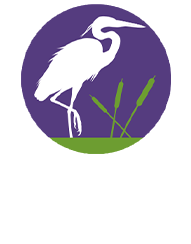Maths
Intent
‘Mathematics is a creative and highly interconnected discipline that has been developed over centuries, providing the solution to some of history’s most intriguing problems. It is essential to everyday life, critical to science, technology and engineering, and necessary for financial literacy and most forms of employment. ‘National Curriculum 2016
At Worple our aim is teach a Maths curriculum that equips children with the tools to be able to problem solve, reason logically and think in abstract ways. We know mathematics is integral to all aspects of life and we endeavour to ensure that children develop a healthy and enthusiastic attitude towards mathematics which will stay with them for life.
We aim for children to:
- enjoy the maths they are taught;
- notice and appreciate maths in the world around them;
- have a positive attitude towards learning maths and expect to be successful;
- acquire a strong fluency in basic number facts and procedures;
- calculate using a range of strategies, choosing the most efficient methods;
- talk and reason about their understanding, using precise mathematical language;
- identify underlying structures, patterns and relationships;
- approach problems with resilience and creativity;
- have a deep conceptual understanding, representing key ideas in diverse ways and appreciating connections between different areas of the curriculum;
- develop both decision making and logical thinking;
- apply and develop their mathematical understanding and knowledge in all other areas of the curriculum;
- work both collaboratively and independently.
Implement
We follow the White Rose Mathematics Program - You can find the Scheme of Learning for each year group here - White Rose Primary Scheme of Learning
As a school we are working toward becoming 'Maths Mastery Ready' - The White Rose schemes of learning are designed to support a mastery approach to teaching and learning, as well as to support the aims and objectives of the National Curriculum.
What is Maths Mastery?
Maths Mastery is an approach to learning which enables children to adopt a deep, secure and adaptable understanding of the key areas of mathematics. Maths is about going deeper and understanding the process, not just finding the answer or accelerating onto new content. Through a mastery approach, there is challenge for all. In some cases, reasonable adjustments are made to the curriculum to ensure that all children access maths at Worple. By exploring different methods through concrete resources and pictures, children become confident in understanding the abstract. At Worple we encourage children to find patterns, make connections and be able to explain their reasoning. In our teaching, we include aspects of the 5 big ideas to support the teaching of a maths mastery lesson.

The 5 big ideas of Maths Mastery:
- Coherence
- Variation
- Fluency
- Mathematical thinking
- Representation and Structure
Why do we teach it?
Maths can be a bit like marmite, some people love it and others do not. It is very easy for children to have a negative maths mindset because they are worried about making mistakes or not understanding the task. Maths Mastery gives children the tools to explore with maths strategies that work for them, make mistakes without feeling judged and understand the connections between what they’re learning and everyday life.
Summary of Maths Mastery:
- The class working together on the same topic
- Speedy teacher intervention to prevent gaps
- Challenge provided by going deeper not accelerating
- Focused, rigorous and thorough teaching
- More time on teaching topics – depth and practice
- Children finding strategies which work for them
How can I support my child in maths at home?
- Build on their knowledge through games, songs and puzzles.
- Use maths in everyday life (telling the time, time taken to travel to places, cooking measures, folding napkins into shapes, money when shopping, cutting and serving food for fractions).
- Use pictures and physical resources that you have at home.
- Regular times tables practise to develop fluency and confidence.
- Talk about days of the week, weeks in a month, months in a year.
- Remind them that mistakes are good and help make their brains bigger!
Impact
Pupil Voice
Through discussion and feedback, children talk enthusiastically about their maths lessons and speak about how they love learning about maths. Children are encouraged at the end of lessons to share what progress they have made and what had helped them make that progress.
Assessment
Teaching staff and support staff use a wide range of formative assessment tools during lessons to judge the impact that the teaching is having on the children’s learning. Children identified as needing more time to ‘grasp’ new concepts or skills are invited to ‘pre teaching’ and ‘booster’ sessions, this is to enable children to keep up rather that catch up!
To further measure the impact of maths teaching and learning we also deliver summative assessments at the end of each term. This is a helpful tool to measure how deep the children have learned a concept when it is assessed out of context and at a later date to the initial teacher input. Question level analysis is then completed of these tests to measure this impact and help inform planning for the next term.
Additional links:
Maths - Long Term Overview White Rose Mathematics Progression Map What is Maths Mastery Maths Calculation policy
Useful Websites


